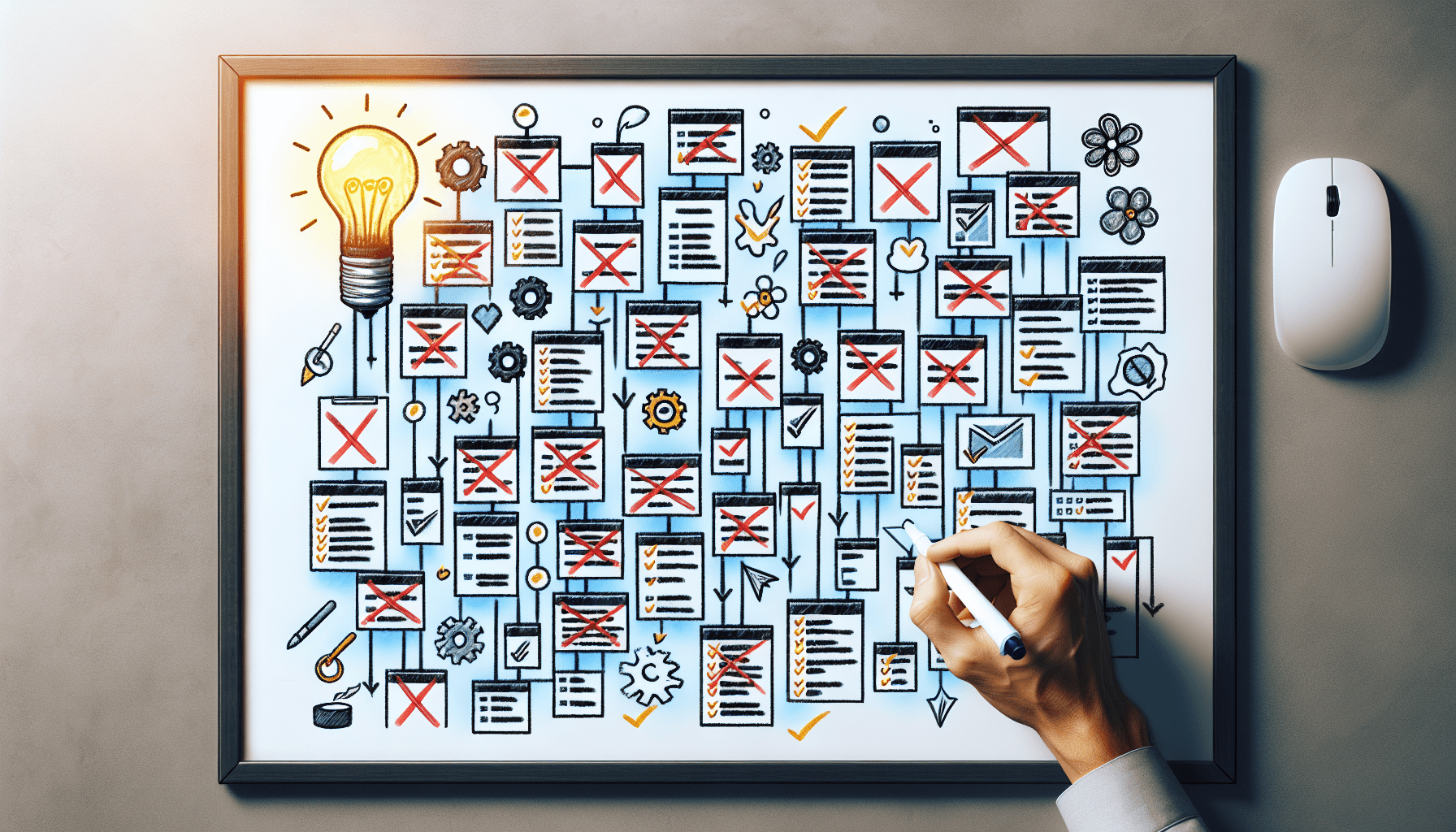
The Art Of Mindful Listening: Improving Focus In Conversations

In “The Art of Mindful Listening: Improving Focus in Conversations,” discover a valuable skill that can enhance your interactions with others: mindful listening. This article provides insights into the power of staying present and concentration strategies to eliminate distractions during conversations. By incorporating mindfulness techniques, you can improve your ability to stay focused, truly understand others, and foster deeper connections. Say goodbye to distractions and hello to more meaningful interactions with those around you.

Understanding the Importance of Mindful Listening
Mindful listening is a valuable skill that can greatly impact our conversations and interactions with others. When we practice mindful listening, we are fully present and engaged, giving our undivided attention to the speaker. This not only shows respect and appreciation for the speaker, but it also cultivates deeper connections and understanding.
The impact of mindful listening on conversations
Mindful listening has a profound impact on conversations. When we truly listen and pay attention to the speaker, we are able to understand their words, emotions, and intentions on a much deeper level. This leads to more meaningful and effective communication, as we are able to respond thoughtfully and empathetically.
The connection between mindful listening and improved focus
One of the key benefits of mindful listening is its ability to enhance our focus. By being fully present in the moment and actively listening to the speaker, we are able to eliminate distractions and concentrate solely on the conversation at hand. This not only improves our ability to comprehend and retain information, but it also allows us to engage in more productive and fulfilling conversations.
Benefits of practicing mindful listening
The practice of mindful listening offers numerous benefits for both the listener and the speaker. For the listener, it enhances their communication skills, helps them form stronger connections, and fosters a deeper sense of empathy and understanding. For the speaker, mindful listening creates a safe and supportive environment, where they feel heard and validated. Overall, practicing mindful listening contributes to healthier relationships, improved problem-solving, and increased personal growth.
Developing the Basics of Mindful Listening
To become proficient in mindful listening, it is important to develop a strong foundation. Here are three essential steps to get started:
Step 1: Creating a conducive environment for listening
To ensure effective mindful listening, it is crucial to create an environment that is conducive to open and honest communication. This means finding a quiet and comfortable space, free from distractions, where both the listener and the speaker feel comfortable and at ease. Eliminating background noise, such as turning off the TV or putting away electronic devices, can significantly improve the quality of listening and engagement.
Step 2: Being fully present in the moment
Being fully present is a fundamental aspect of mindful listening. It involves setting aside any preconceived notions or judgments and immersing oneself in the present moment. This can be achieved by focusing on the speaker’s words, observing their body language, and maintaining eye contact. By being fully present, we can better understand the speaker’s perspective and respond in a more meaningful and empathetic manner.
Step 3: Practicing non-judgment and empathy
Mindful listening goes hand-in-hand with non-judgment and empathy. It requires us to suspend our own judgments and biases and truly listen to the speaker without inserting our own opinions or assumptions. This also involves empathizing with the emotions and experiences conveyed by the speaker, allowing us to respond in a compassionate and understanding way. By practicing non-judgment and empathy, we create a safe and supportive space for open dialogue and connection.

Enhancing Focus through Mindful Listening
To further enhance focus and concentration during mindful listening, there are specific techniques that can be employed:
Using breath awareness to improve concentration
One powerful technique to improve concentration during mindful listening is through breath awareness. By paying attention to our breath as we listen, we can anchor our focus and prevent our thoughts from wandering. Taking slow, deep breaths while observing the sensations of the breath can help us stay present and fully engaged in the conversation.
Employing active listening techniques
Active listening is an essential skill to cultivate during mindful listening. It involves not only hearing the speaker’s words but also actively processing and understanding their meaning. Key components of active listening include paraphrasing, summarizing, and asking clarifying questions to ensure accurate comprehension. By employing active listening techniques, we can improve our focus and strengthen our connection with the speaker.
Maintaining eye contact and nonverbal cues
Maintaining eye contact and observing nonverbal cues are vital aspects of mindful listening. Eye contact conveys attentiveness and respect, while nonverbal cues such as nodding, facial expressions, and body language provide additional information and context. By consciously paying attention to these cues, we can better understand the speaker’s emotions and intentions, fostering a deeper level of connection and engagement.
Overcoming Common Challenges in Mindful Listening
While mindful listening has many benefits, it can also present challenges. Here are some common challenges and strategies to overcome them:
Dealing with internal distractions
Our own internal distractions, such as racing thoughts or personal biases, can impede mindful listening. To overcome this challenge, it is important to cultivate self-awareness and recognize when our attention starts to wander. By acknowledging these distractions without judgment, we can redirect our focus back to the speaker and the conversation at hand.
Managing external distractions
External distractions, such as noise or interruptions, can also pose challenges to mindful listening. To manage these distractions, creating an environment that is free from external interruptions is helpful. If external distractions do arise, it is important to remain flexible and adaptable, acknowledging and addressing them as necessary to maintain focus on the speaker.
Navigating through different communication styles
Different individuals may have varying communication styles, which can present challenges during mindful listening. To navigate through these differences, it is important to approach each conversation with an open and curious mindset. By recognizing and adapting to the speaker’s unique style, we can better understand and connect with them, promoting effective and respectful communication.

Improving Conversation Skills with Mindful Listening
Mindful listening greatly enhances our conversation skills, enabling us to engage more deeply and effectively with others. Here are some techniques to further improve our conversation skills through mindful listening:
Deepening understanding through effective questioning
Effective questioning is a powerful tool to deepen our understanding of the speaker’s perspective. By asking open-ended questions that encourage the speaker to elaborate and share more, we can gain valuable insights and foster a more meaningful dialogue. This demonstrates genuine curiosity and interest, leading to richer and more fulfilling conversations.
Reflective listening techniques
Reflective listening involves paraphrasing or summarizing the speaker’s words to ensure accurate comprehension. By reflecting back what the speaker has shared, we not only confirm our understanding but also convey our active engagement and attentiveness. This technique promotes clarity and reduces miscommunication, strengthening the connection between the listener and the speaker.
Avoiding interrupting and multitasking
Interrupting the speaker or engaging in multitasking during a conversation can hinder mindful listening and disrupt the flow of dialogue. To avoid these pitfalls, it is important to be patient and attentive, allowing the speaker to fully express themselves before responding. By giving our undivided attention to the conversation, we can foster a more respectful and productive exchange.
Building Stronger Relationships with Mindful Listening
Mindful listening plays a crucial role in building stronger and more meaningful relationships. Here are some ways in which mindful listening can contribute to relationship development:
Cultivating trust and mutual respect
Mindful listening promotes trust and mutual respect within relationships. When we listen attentively and genuinely, we demonstrate our investment in the relationship and show that we value the other person’s thoughts and feelings. This fosters an environment of trust and respect, where individuals feel safe to express themselves openly and honestly.
Enhancing emotional connection
Mindful listening enables us to connect with others on an emotional level. By actively listening and empathizing with the speaker’s emotions, we validate their experiences and create a deeper sense of connection. This emotional connection strengthens relationships and allows for more authentic and fulfilling interactions.
Fostering a sense of validation and understanding
One of the most powerful aspects of mindful listening is its ability to make others feel validated and understood. When we listen deeply and empathetically, we acknowledge the speaker’s thoughts and feelings without judgment or interruption. This validation and understanding create a sense of acceptance and support, strengthening the bond between individuals.
Practical Strategies for Implementing Mindful Listening
To integrate mindful listening into our daily lives, it is important to adopt practical strategies. Here are some strategies that can help us cultivate mindful listening:
Setting aside dedicated time for mindful listening practices
Allocating specific time for mindful listening practices can greatly enhance our skills. This can include setting aside a few minutes each day to practice focused listening, or dedicating regular intervals during conversations to engage in mindful listening. By making it a priority and incorporating it into our routine, we can develop mindful listening as a regular habit.
Finding accountability partners or groups
Seeking out accountability partners or joining mindfulness groups can provide support and encouragement in our mindful listening journey. By partnering with individuals who are also interested in developing their listening skills, we can share experiences, exchange insights, and hold each other accountable. This fosters a community of growth and learning.
Utilizing technology for mindful listening
Technology can be a valuable tool in practicing mindful listening. There are various mindfulness apps and podcasts that offer guided meditations and exercises specifically designed to enhance listening skills. These resources can provide additional guidance and support as we develop our mindful listening abilities.
Exploring Mindful Listening in Different Contexts
Mindful listening is a versatile skill that can be applied in various contexts. Here are some examples of how mindful listening can be practiced in different settings:
Mindful listening in personal relationships
In personal relationships, mindful listening can significantly enhance communication and connection. By practicing mindful listening with loved ones, we create an environment of trust, validation, and understanding. This promotes healthier and more fulfilling relationships by fostering effective and empathetic communication.
Mindful listening in professional settings
Mindful listening is equally valuable in professional settings. By actively listening to colleagues, superiors, or clients, we can improve our understanding of their needs and perspectives. This enhances collaboration, problem-solving, and productivity in the workplace, leading to more successful professional relationships.
Mindful listening in group settings
Mindful listening can also be practiced in group settings, such as meetings or group discussions. By ensuring that each member has the opportunity to be heard and actively listening to each contribution, we foster a sense of inclusivity and respect. This encourages diverse perspectives and facilitates more meaningful and productive group interactions.
Addressing Common Misconceptions about Mindful Listening
Despite its numerous benefits, there are some misconceptions about mindful listening that need to be addressed:
Mindful listening is not about being passive
Contrary to popular belief, mindful listening is not about being passive or simply nodding along. It requires active participation, engagement, and curiosity. Mindful listeners are fully present and actively processing the information being presented, demonstrating a genuine interest in the speaker’s words. It is an active practice that requires conscious effort and attention.
Mindful listening does not require agreement
Mindful listening is not dependent on agreement or shared opinions. It is about understanding and empathizing with the speaker’s perspective, even if it differs from our own. Mindful listeners do not need to endorse or adopt the speaker’s viewpoint but rather seek to understand and appreciate their unique experiences and insights.
Mindful listening is not limited to verbal communication
Mindful listening extends beyond verbal communication. It involves observing and interpreting nonverbal cues, such as body language, facial expressions, and tone of voice. These nonverbal cues provide valuable information and context, allowing for a more holistic understanding of the speaker’s message.
Gaining Mastery in Mindful Listening
To become a masterful mindful listener, continuous practice and refinement are essential. Here are some strategies to enhance and expand our mindful listening skills:
Continuously practicing and refining the skill
Like any skill, mindful listening requires consistent practice to fully develop. Taking the time to engage in daily listening exercises, reflecting on our experiences, and seeking opportunities to practice mindful listening in various contexts can significantly improve our abilities.
Seeking feedback and self-reflection
Feedback is a valuable tool for growth and improvement in mindful listening. Seeking feedback from trusted individuals or participating in peer evaluations can help us identify areas for improvement and refine our techniques. Additionally, engaging in self-reflection after each conversation allows us to assess our listening skills and identify areas for further development.
Expanding knowledge through resources and courses
Continuing to expand our knowledge and understanding of mindful listening is crucial for mastery. Reading books, attending workshops, or enrolling in courses on active listening, empathy, and communication can provide valuable insights and tools to enhance our mindful listening skills.
By adopting these strategies and committing to continuous growth, we can truly master the art of mindful listening and experience the profound benefits it brings to our relationships and personal development. Remember, mindful listening is a journey, and every conversation presents an opportunity for growth and connection.




















